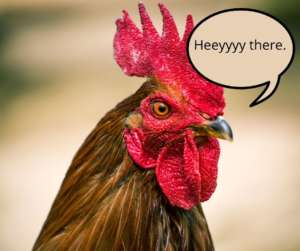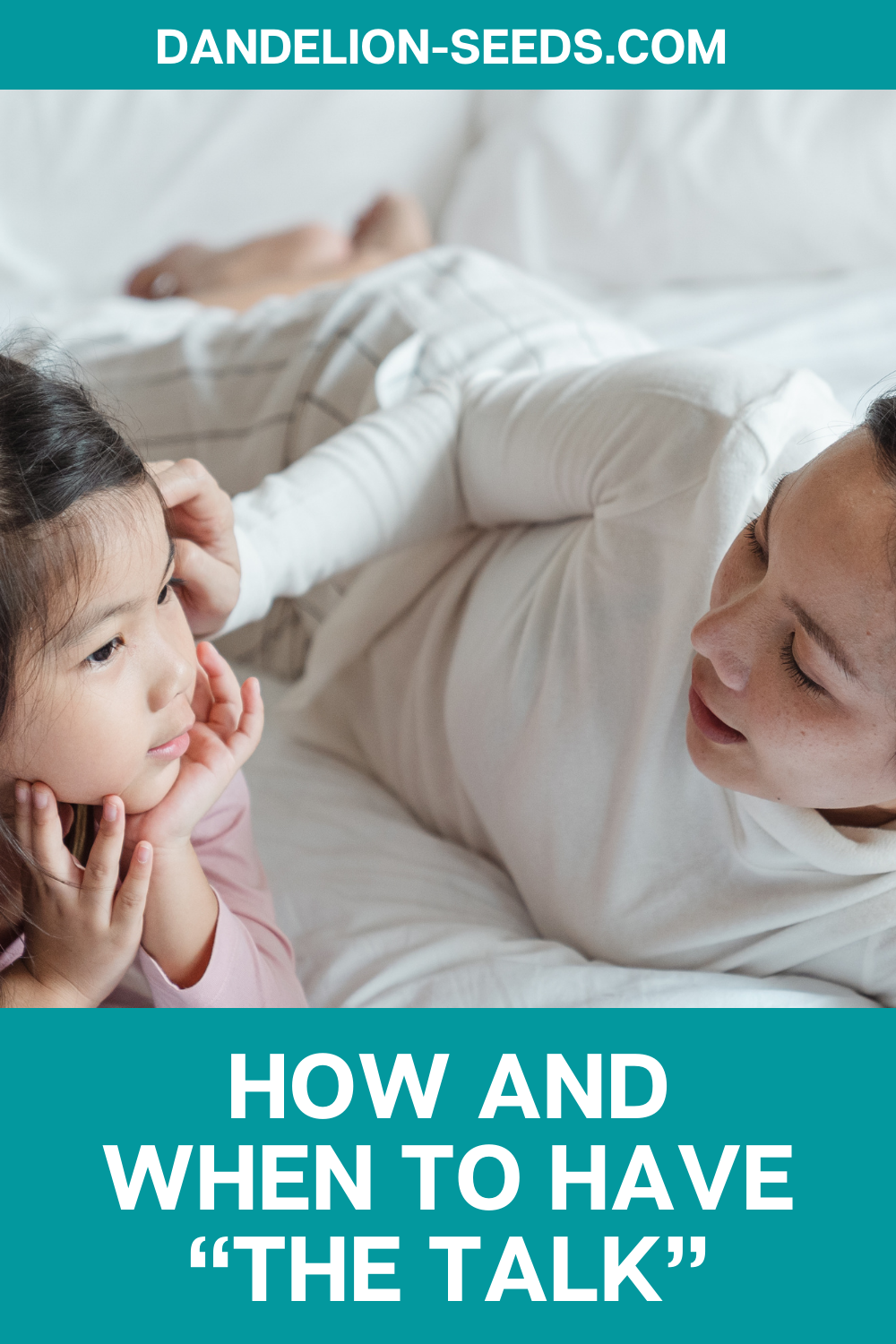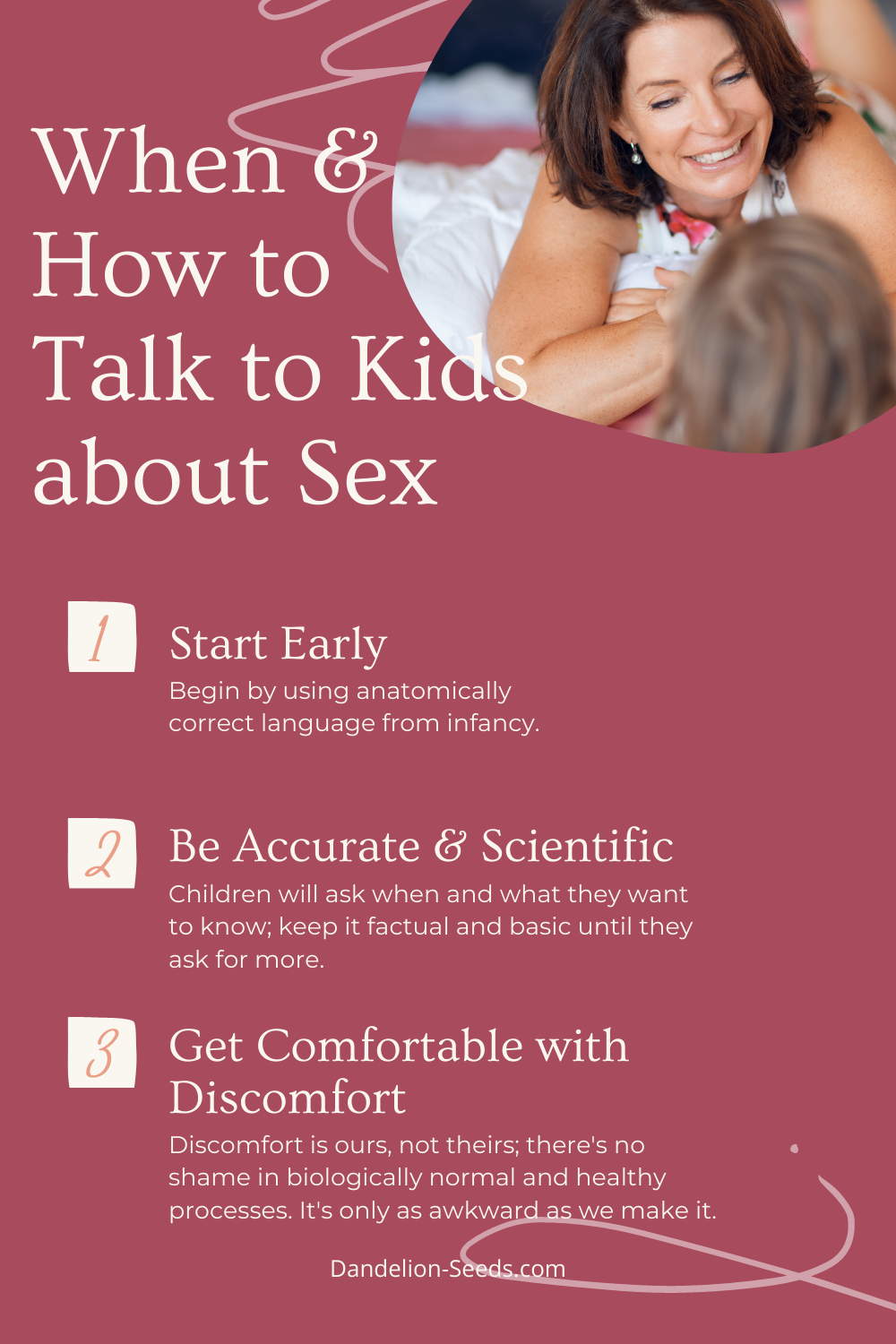
Sign in
Don't have an account with us? Sign up using the form below and get some free bonuses!

"The birds and the bees" is the mother of all euphemisms. It's how people used to refer to the so-called sex talk that parents have dreaded since...actually, not that long ago.
Up until fairly recently, farm life was children's natural foray into sex education. Want to learn about how reproduction works? Look no farther than the pasture in the springtime, kids. Animals have never had any shame about their sexuality. It's as natural as the sun rising and setting.
Most of us don't live on farms anymore, though. As such, talking about what kids see has changed over time from "what those cows are doing over there" to talk of tall buildings and city buses. Many of us live nowhere near nature, much less near nature where reproductive things are happening.
If children aren't exposed to sexual processes on the farm anymore, though -- including actual birds and bees -- how are they to learn about it?
* By the way, I'm referring to the birds and the bees only because people still search the Internet using these exact terms ("birds and bees"), and I want them to find newer, science-backed approaches to how to discuss this topic. Personally, I am very comfortable talking about sex just as it is. If you're not, though, I've written this article as gently as I can while still being true to science and my own experience.
I can thank a local rooster for piquing my eight-year-old daughter's curiosity about the birds and the bees.
One day earlier this week when we were at a local farm, a rooster took a liking to a particular fine lookin' chicken, unzipped his leisure suit, and the rest was history. The amorous rooster and chicken were about 10 feet away from my daughter so she saw the whole exchange in vivid detail.
Tonight at dinner, seemingly out of the blue, she said, "I've been thinking about lawnmowers, Mama. And roosters. By the way, how exactly does the rooster fertilize the chicken's egg? Tell me how THAT happens."
I finished my bite of dinner, feeling thankful that my mouth had been full so I could buy a few moments of figuring out what to say.
I did what many self-respecting parents do: I stalled. I replied, "Ummm...let's finish dinner first, okay? I need to think about this." (It's totally fine to delay a few minutes if you're anything like me and want to giggle despite your BEST ATTEMPTS at being a mature adult. I needed a moment to get my act together.)
After dinner, though, and while we were upstairs getting her ready for bed, I pulled up my proverbial big-girl bootstraps and invited more dialogue. I asked, "What was it you wanted to know about the rooster?"
You see, I wanted to give her the opportunity to refine her question (or opt out of it if she wanted to focus on something else -- because, as you know, once this cat is out of the bag, it's out forever).
She stuck to her original question.

I told her in my best birds and bees voice (every parent comes equipped with one, I learned tonight), "Do you remember how males have cells called sperm?"
"Nope, Mama, I don't remember that."
Okay, well, I know we've covered that before, but whatever. "Males have sperm. Females have eggs, as you know. When the male's sperm connects with the female's egg, it fertilizes it and makes a baby."
"Oh, okay," she said, "So men and women go potty on each other?"
I replied, "No, the sperm does come out the penis, but it's not in its urine." I then proceeded to get into a highly detailed and intentionally deep and scientific discussion of zygotes and twins versus singletons, multiple births, etc.
I basically succeeded in throwing her off the trail through the gift of boredom -- hooray!
But no, not hooray. I caught myself and remembered that I'm a parenting educator so I have to model authentic and accurate discussions with my own child.
At this point, it was time to go to her bedroom and turn off the lights (phew -- now she couldn't see me blushing because I BLUSH AT SERIOUSLY EVERYTHING. My darn Snow White skin is a serious liability sometimes.)
I explained that the sperm has to get really close to the egg before it can fertilize. (How am I doing? Was "really close" descriptive enough? No? Dangit!)
She said, "Okay. I'm tired."
Shoot. I'm 95% of the way through the sex talk. I can't quit now.
Knowing she was tired AND that we were in the dark, I added, "By the way, for the sperm to get close to the egg, the penis has to go inside the vagina."
Suddenly my child is wide awake again.
"WHAT? That's just WEIRD, Mama. Have you ever even SEEN a rooster's penis?"
I replied honestly, "No, I don't think I have."
"Well of course you haven't, Mama -- it's not like they go around lifting up their feathers like a skirt and saying, 'Hey, everybody! Look what I've got under here! It's my rooster-penis!'"
Okay, now I'm giggling and doing my best not to shake her bed with my laughter in the dark, lest I make this even more uncomfortable for both of us. Rather, more uncomfortable for me. She is clearly fine.
Part of what I'm finding funny is that our sex talk actually does involve the birds and the bees, even if we've only focused on the birds so far.
She drifts off to sleep singing a quiet chorus of "Cockadoodledoo" on repeat. I keep giggling to myself.
And that's that. She knows.
And we're both alright, even if I'm now picturing roosters sauntering around with their skirts up.

We can begin sex education when our children are infants, insofar as we can name their private areas for them just as nonchalantly as we name their ears, noses, and 10 tiny toes. Diaper changes and bath time are great opportunities to practice getting comfortable talking about body parts.
Only adults carry shame and embarrassment about these words, although there is nothing inherently shameful about them. They're just body parts. Until we ascribe some deeper meaning to any part of the body, it really is neutral territory.
Plus, the younger our child is when we get comfortable talking about words that may make us blush, the more practice we'll have not blushing when our young child someday asks us an awkward and unexpected question, like what happened tonight.
I was really glad I didn't have to go back to square one and name all the body parts involved. She already knew those and feels completely comfortable with them, as do I. It's important that we use anatomically correct language for our children's safety.
The thing is, children are naturally curious about the birds and the bees. It's human nature to search for answers about why we have these parts in the first place.
As a general rule, children are pretty literal and will ask only what they want to know. We can answer truthfully and simply. When they want more detail, they'll ask for it, especially if we've made open dialogue emotionally safe for them.
We can deliver answers in bite-sized pieces. Ultimately, this makes the sex discussion easier on both of us, while we cover just little bits at a time.
The only newsworthy item tonight was the how of sex. She already knew the names and general purpose of all the parts, thanks in part to her years of unwavering commitment to joining me in the restroom.
Very young children don't need to know a whole lot, other than, for example, which parts of our bodies we use to go to the bathroom, and that breasts are for nursing children. They'll ask more when they want to know.
As they grow, you can ask your child's school, guidance counselor, or local librarian for good reference material that's age-appropriate. They can often provide wonderful and free resources about reproduction, tips for how much to share based on this child's age, and other related information. Many wonderful books exist nowadays to make the discussions easier.
Related mini-course: Body Safety: How & When To Talk To Kids About Their Bodies
In short, here's what you need to know:

Parents and caregivers have the primary relationships with their kids, so it's on us to address topics of a sexual nature. We shouldn't assume kids will learn the correct information at school, especially since their primary reference might be what they learn from their friends on the playground.
School will instruct children to some degree, yes. However, kids will want to know more than what most schools teach, such as specifics related to their sexuality, or the sexuality of others they may know. The older children get, the more questions they'll have -- and it will no longer involve roosters (who, as it turns out, don't actually have penises at all).
It's really important not to shame or embarrass children for asking. I'd much rather a child ask their parents than search the Internet for the answers; God only knows what they'll run across in the media. We don't want our kids educated by inappropriate videos or online predators who'd be more than happy to teach them.
Related article about abuse: Safe Touch and Sexual Safety
In a nutshell, we need to be honest, patient, and open. We have to accept that our kids ARE going to learn about sex. The choice is ours how and where we want them to hear the specifics of the message, provided that no one else has told them first.
We're more likely to be their safe place for questions about birds and bees -- or, let's call it what it is -- sex, because we've created safety around the entire discussion, the birds and the bees, roosters and all.
